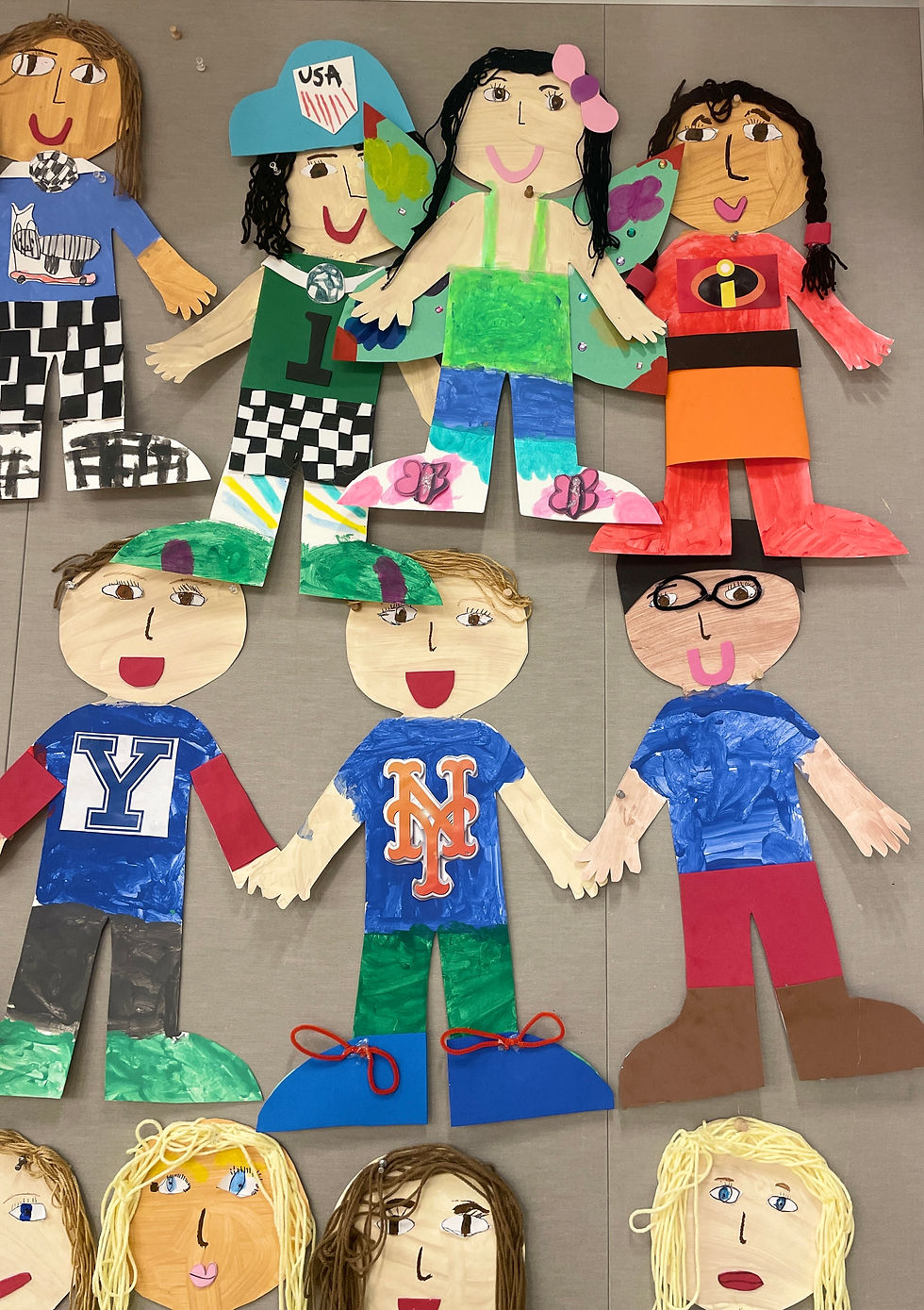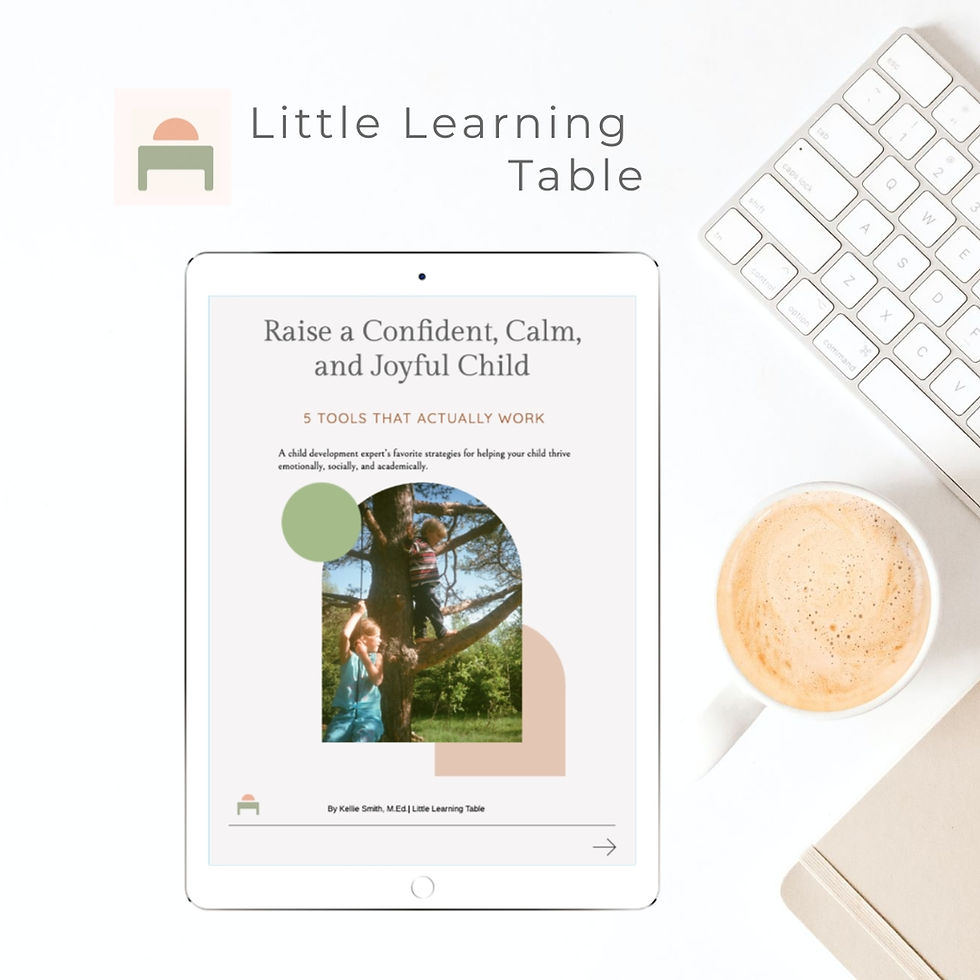Gentle Parenting and the Classroom Disconnect: What I’ve Seen as a Teacher
- Kellie Smith

- Jul 16, 2025
- 3 min read
Updated: Aug 7, 2025
By Kellie Smith, M.Ed.| Little Learning Table
Sitting down with my puppy, Pearl, and a cup of coffee, I found myself reflecting on a term that’s been gaining traction lately—gentle parenting. As someone who has spent over 15 years teaching young children in both public and private schools, I’ve seen firsthand how parenting philosophies have evolved—and how those shifts are playing out in today’s classrooms.
When I searched “gentle parenting,” I found a range of definitions. Some say it’s about avoiding punishment and staying calm. Others emphasize the importance of boundaries, empathy, and respect. Honestly, many of these principles resonate with me. Of course, children need warmth, consistency, and joy. Of course, they need to feel heard and valued.
So, why is it that, despite these well-intentioned efforts, more and more children are struggling in school?
Over the years, I’ve noticed changes—not just in academics, but in children’s ability to accept limits, solve problems independently, and navigate social situations. Earlier in my career, I taught in communities where children faced immense challenges—poverty, food insecurity, and language barriers. Many came to school without the routines or stability we often take for granted. And yet, many of those same children thrived in the structure and predictability of the classroom. Their families saw school as an extension of their parenting. They told their children that teachers were to be respected, that school was a place to try their best, and that if there were a problem, there would be accountability both at school and at home.
Fast forward to today, where I’ve been teaching in schools with significantly more resources—families with every advantage, schools that offer parent education sessions, learning specialists, occupational therapists, school psychologists, and a deep commitment to student wellbeing. And yet… I’m seeing more children struggle with basic classroom expectations than ever before. Routines feel harder to establish. Limits are harder to enforce. Words like 'no' or 'share' can lead to explosive emotions.
This isn’t just my observation—colleagues and administrators have noticed it too. In response, one of the schools where I taught in NYC received additional training in Positive Discipline, and they even offered the same workshop geared towards families. But very few parents attend. Not because they don’t care, but because they’re overwhelmed. They're trying to work full-time, raise children, coordinate activities, manage the household, and somehow stay calm through it all. I genuinely believe that most parents are doing the very best they can with the time, tools, and information available to them.
Still, something’s getting lost in translation.
Children need boundaries just as much as they need love. They need to know that their teacher is on their team and in charge. They need parents and teachers speaking the same language—reinforcing one another, not contradicting each other. And they need adults who trust each other enough to share concerns and work together.
The truth is, school can’t do it alone. And neither can families. We need each other.
So if you’re a parent reading this, here’s my invitation: Ask your child’s teacher how your child navigates routines, responds to limits, and interacts with peers. Ask not just about academic progress, but about emotional and social development. And if your teacher offers feedback, try to hear it as a partner would, not as a judgment, but as a data point to consider. A teacher might observe your child alongside 20 other children all day, every day. That perspective is invaluable.
Parenting is hard. Teaching is hard. But together, we can make it easier and better for the children we all care so deeply about.





Comments